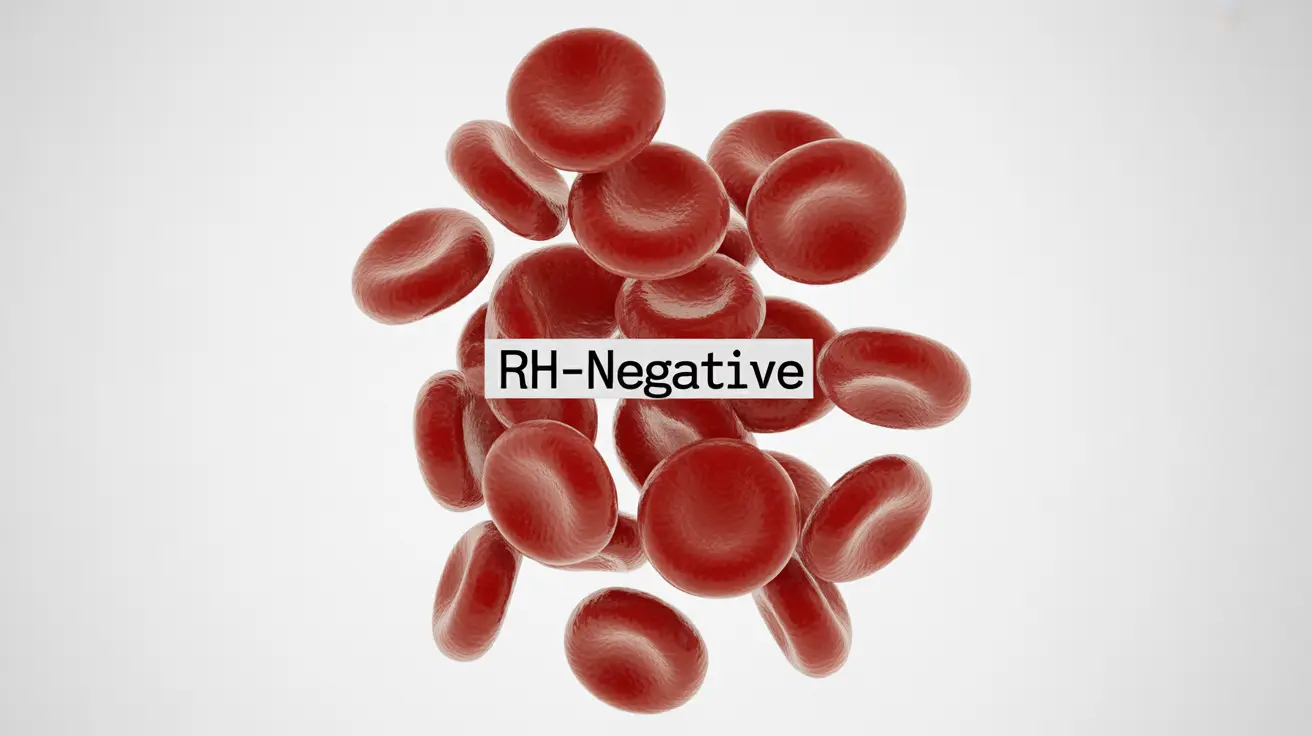The relationship between Rh-negative blood type and disease immunity has been a subject of significant interest and speculation, particularly during recent global health challenges. As approximately 15% of the population has Rh-negative blood, understanding its potential impact on disease susceptibility and immune response is crucial for both medical professionals and patients.
This comprehensive guide explores the scientific evidence behind Rh-negative blood's relationship with various diseases, its role in pregnancy, and its impact on immune system function. We'll separate fact from fiction and provide clear, evidence-based information about this unique blood characteristic.
Understanding Rh-Negative Blood
Rh-negative blood is characterized by the absence of the Rh factor, a protein found on the surface of red blood cells. This genetic trait affects how the immune system responds to various substances and can influence medical considerations, particularly during pregnancy and blood transfusions.
Unlike other blood type characteristics, the Rh factor's presence or absence can have significant implications for immune system function and medical treatment protocols.
The Truth About Disease Immunity
Despite various claims circulating online, there is no scientific evidence that Rh-negative blood provides universal immunity against infectious diseases. While blood type may influence susceptibility to certain conditions, being Rh-negative does not confer automatic protection against viral or bacterial infections.
Viral Infections and Blood Type
Research has shown that blood type can affect susceptibility to certain viral infections, but this relationship is complex and not exclusive to Rh-negative status. Studies have found that blood type influences infection risk through various mechanisms, including:
- Different receptor proteins on cell surfaces
- Varying immune system responses
- Genetic factors associated with blood type inheritance
Pregnancy and Rh Factor Considerations
One of the most important medical considerations for Rh-negative individuals occurs during pregnancy. When an Rh-negative mother carries an Rh-positive fetus, specific medical interventions are necessary to prevent complications.
The Role of Rh Immune Globulin
Modern medicine has developed effective prevention strategies for Rh incompatibility during pregnancy. Rh immune globulin (RhoGAM) is administered to Rh-negative pregnant women to prevent their immune systems from developing antibodies against Rh-positive blood cells.
Autoimmune Disease Connection
Some studies suggest a potential correlation between Rh-negative blood type and certain autoimmune conditions. However, this relationship is not fully understood and requires more research. Having Rh-negative blood does not necessarily increase or decrease overall autoimmune disease risk.
Frequently Asked Questions
- Are people with Rh-negative blood immune to infectious diseases like COVID-19?
No, there is no scientific evidence that Rh-negative blood provides immunity to COVID-19 or other infectious diseases. Everyone should follow recommended preventive measures regardless of blood type.
- How does Rh-negative blood affect the risk of developing autoimmune diseases?
While some studies suggest potential connections between Rh-negative blood and certain autoimmune conditions, there is no definitive evidence that being Rh-negative significantly increases or decreases overall autoimmune disease risk.
- What is Rh incompatibility and how can it impact pregnancy?
Rh incompatibility occurs when an Rh-negative mother carries an Rh-positive fetus. Without proper medical intervention, the mother's immune system may develop antibodies that can affect future pregnancies and potentially harm the developing baby.
- Can being Rh-negative protect against certain viral infections?
While blood type can influence susceptibility to certain infections, being Rh-negative does not provide specific protection against viral infections. The relationship between blood type and infection risk is complex and involves multiple factors.
- Why is Rh immune globulin given to Rh-negative pregnant women, and how does it work?
Rh immune globulin (RhoGAM) is given to prevent Rh-negative women from developing antibodies against Rh-positive blood cells. It works by neutralizing any Rh-positive blood cells from the fetus that may enter the mother's bloodstream, preventing sensitization of the mother's immune system.




